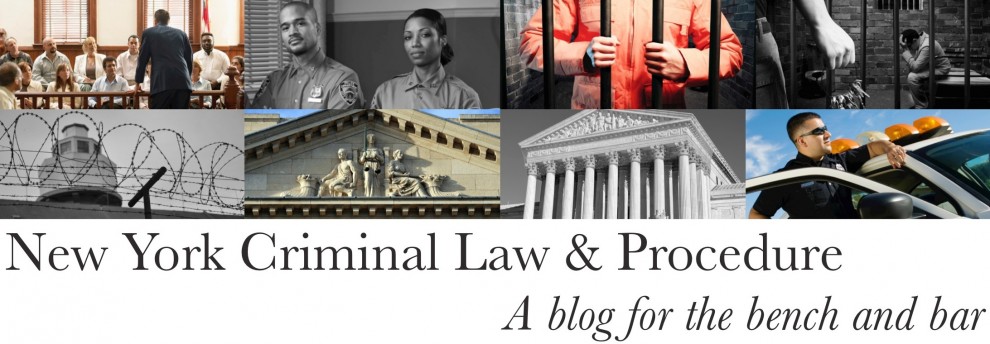In People v. Fick (4th Dept. 12/21/2018), the Fourth Department found that a prosecutor’s cross-examination of a witness regarding inadmissible evidence constituted proper misconduct; however, the majority did not find that it was enough to constitute a reversal of the defendant’s convictions.
At the lower court, the defendant was convicted of Burglary 1°, Grand Larceny 4°, and Unlawful Imprisonment 1°. The defendant made several contentions on appeal that were rejected by the Court. The Court found that the evidence did support a conviction and the verdict was not against the weight of the evidence.
The defendant also contended that he was deprived of a fair trial by the prosecutor. However, during trial he did not object to any alleged instances of prosecutorial misconduct, so this contention was not preserved for appeal. The Court still looked into the merits of this claim; however, it found that on the whole it failed because all the comments made by the prosecutor were fair.
Nevertheless, the Court agreed with the defendant’s contention that the prosecutor exceeded the bounds of propriety by cross-examining a defense witness regarding an uncharged crime that the defendant allegedly committed and by placing his credibility at issue in doing so. The Court held that in this case, the prosecutor strayed outside the four corners of evidence and the jury should be deciding a case solely on the evidence.
Despite this finding by the Court, it held that reversal was not warranted. This is because the Court found that the error had not substantially prejudiced the defendant’s trial. The dissenting judges pointed out that this very prosecutor had been admonished before on appeal. However, the admonishment had occurred after the trial in this case. The Court noted that although it strongly condemned the prosecutor’s conduct, it did not find it warranted reversal.
The defendant also contended that he was denied effective assistance of counsel due to the lack of objection to these prosecutorial errors. The Court rejected his claim.
The dissenting judges agreed with the majority that the defendant’s contention was valid, but they opined that the prosecutor did cause substantial prejudice to the defendant. Further, they stated that the prosecutor’s remarks during summation were inflammatory and prejudicial to the defendant. For these reasons, the dissenters wrote that they could conclude that absent such misconduct, the same result would have been reached. (JC/LC)


